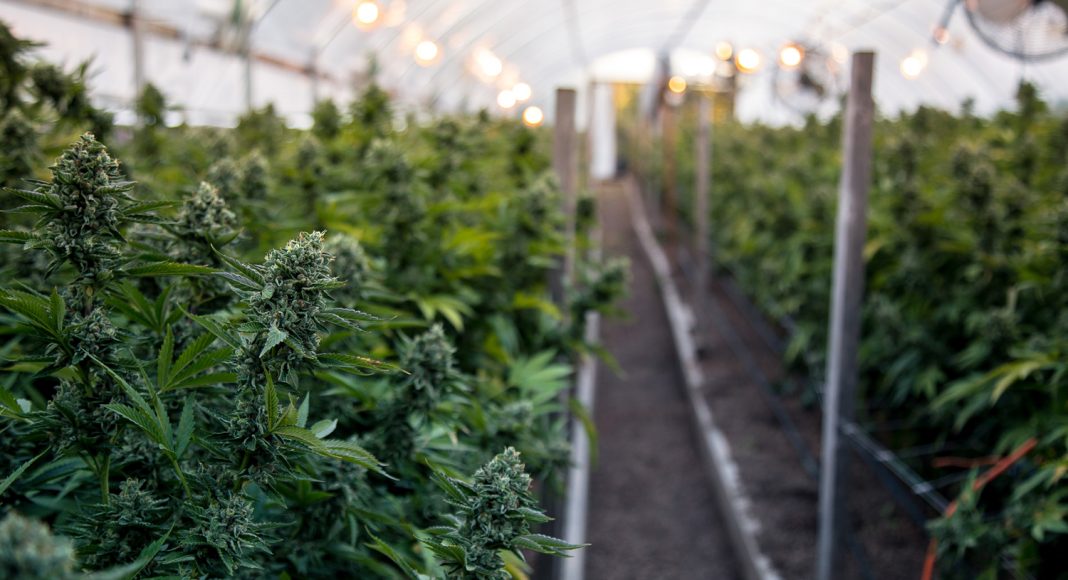When searching for some of the most depraved parts of the United States, all one has to do is head south. This friendly area may give off the vibe as being a Bible-thumping cult of Jesus Crispies, a place that, for better or worse, is built on strict moral fiber and family traditions – and it might just be.
But it is also where the Devil lives.
Anyone who has ever spent time in New Orleans can attest to this. It’s where the bars seldom close and drugs, well, everything from cocaine to heroin is readily available on the streets. It’s no wonder why this is where you’ll find some of the highest addiction rates in the country.
RELATED: Cancer Patients Should Just Buy Marijuana On The Streets, Says Alabama Senator
This also happens to be where lawmakers are most apprehensive about drug reform. This is especially true when it comes to the legalization of marijuana.
In Alabama, a state where opioids are doled out with rabid enthusiasm, even the concept of medical marijuana is still difficult to embrace.
The state Senate recently put its stamp of approval on a measure intended to give patients with a variety of health conditions (including pain syndromes and opioid addiction) access to therapeutic cannabis. It was a sign that real change was on its way in the southern states. That is until the measure was sent to the House Of Representatives and tangled with Speaker Mac McCutcheon.
RELATED: Here’s What Happened When New Orleans Decriminalized Marijuana
The Republican felt the issue wasn’t quite ready to be put up for a vote in the lower chamber, so he proposed the state enter into a study phase instead.
“We’re listening to the opponents and proponents on it,” McCutcheon said. “We’re gathering information. And that’s one reason that this study commission idea, I think, is going to be very significant.”
As of Thursday, that’s exactly where medical marijuana is headed in Alabama – commission mode. A proposal calling for a 15-member council to dig deeper into the legislative verbiage and regulations is now on the table. The idea is to see what might work, what will rest comfortably on the bipartisan palate, and then, whenever it feels right, take the state down that road.
Lawmakers close to the situation believe it is a compromise.
“It’s at a point where we can all work with it,” Senator Tim Melson, the bill’s sponsor, told the Montgomery Advisor. “It’s a big step and everybody is stepping out of their comfort zone.”
Further south, in Louisiana, nothing Earth-shattering is happening either with respect to marijuana legalization.
Earlier this week, the House Criminal Justice Committee took a look at a bill intended to legalize the leaf for recreational use. The proposal would have given adults 21 and older the right to possess up to an ounce of marijuana without catching any heat from the law. It would have also established a taxed and regulated retail system similar to those in other legal states.
But in the end, state lawmakers just weren’t ready to get into weed.
“We are always the last one,” said the bill’s frustrated sponsor Representative John Bagneris. “Other states are doing it, making millions and billions of dollars. We are not here to invent the wheel. The wheel is already there.”
It was no surprise that Louisiana couldn’t find a way to recreational marijuana. The state is still struggling to assemble a functional medical marijuana program. Although lawmakers passed a restrictive medicinal cannabis law in 2015, many patients are still waiting for the day when they can gain access. Because right now, there is none. The delays with cultivation and processing have been just as impressive as they are embarrassing.
Medical marijuana cannot be sold in smokable form, so all plants must be made into oils and topicals before they are retail ready. There are also snags concerning product testing. The situation is so bad that patients that were cleared to use medical marijuana over a year ago by their physicians are still waiting for the opportunity to get their hands on this medicine. It is possible that some could be serviced later this summer.
Interestingly, all of the public opinion polls published in recent months shows that both Alabama and Louisiana voters believe marijuana should be legal. Just like other parts of the country, however, lawmakers do not share in this enthusiasm. But really, these states are no more stuck in the mud than places like New York and New Jersey, which promised marijuana legalization was on the horizon. The only difference is the south isn’t making promises it can’t keep.


